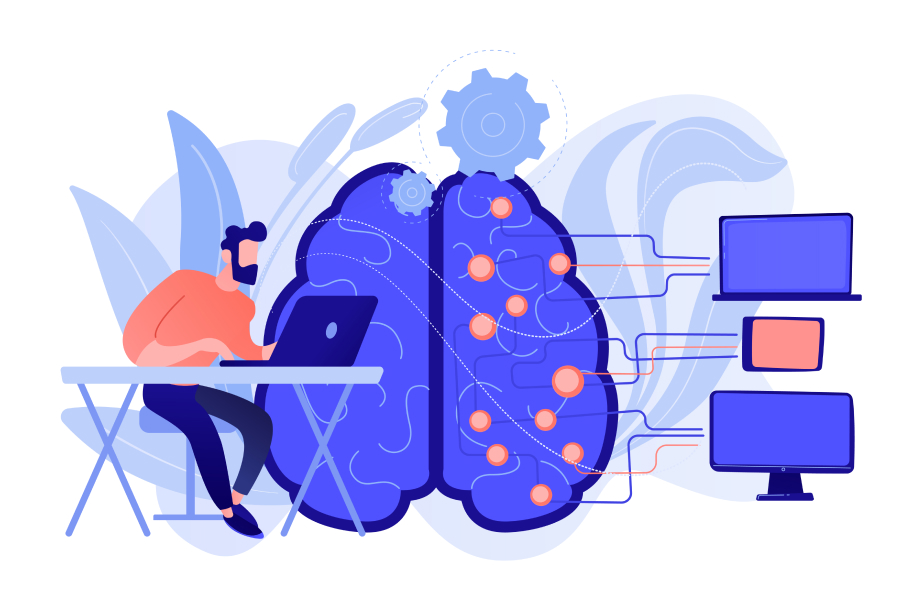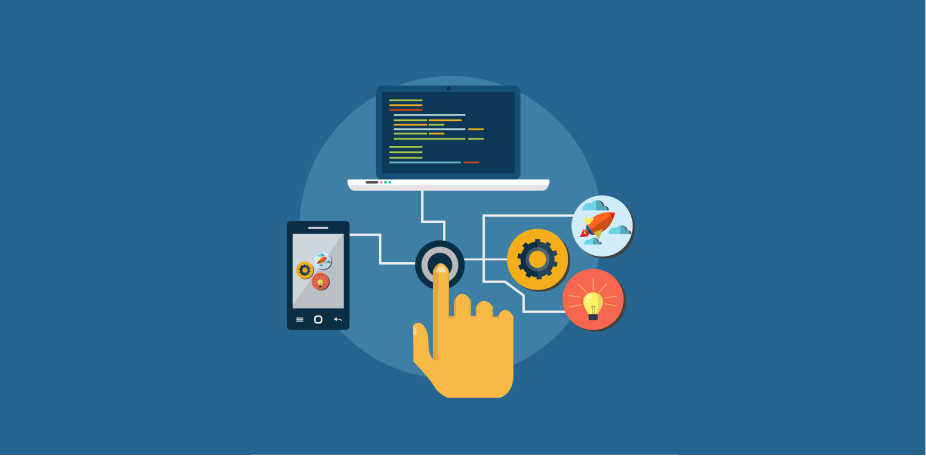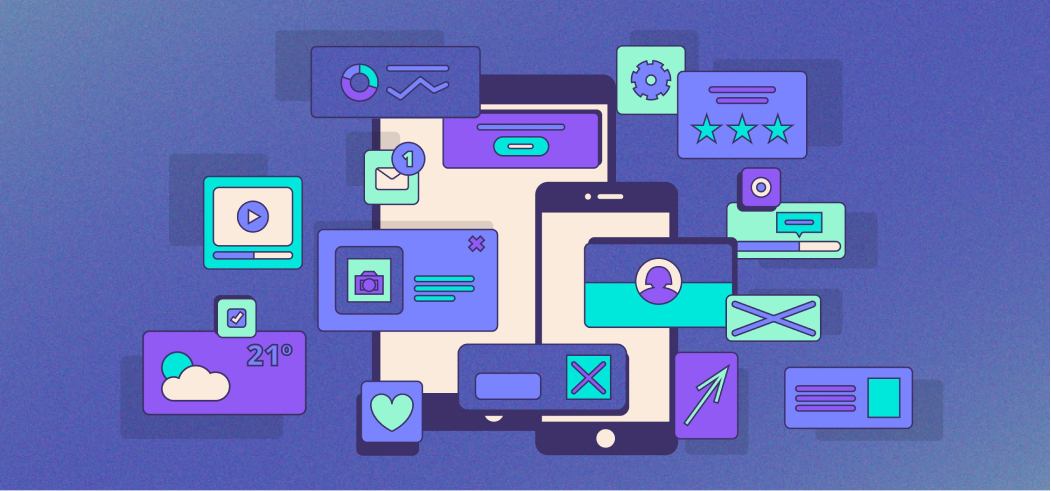
The Role of AI in Web Development: Transforming Digital Interfaces and User Experience
The Rising Trend of AI in Web Development
Have you noticed the ripple in the digital pond? Yes, we're talking about the rising trend of AI in web development. This wave isn't just about fancy robots or science fiction anymore. It's a real, impactful phenomenon that is changing how websites are built and interacted with. Today, we can see AI's fingerprints everywhere - in search engines, recommendation systems, voice-powered assistants, and more. AI in web development is now about creating immersive, intuitive, and highly personalized user experiences that were unthinkable a decade ago.
Understanding Artificial Intelligence in the Context of Web Development
You may be wondering, "What does Artificial Intelligence mean in the realm of web development?" In simple terms, AI is about machines mimicking human intelligence. But it's not just about replicating human behaviour; it's about learning from experiences, predicting outcomes, and making decisions. It's about creating systems that can learn, reason, problem-solve, perceive, and even understand human language. In the context of web development, AI could mean a variety of things, from automating routine tasks to providing personalized content and user experiences.
Brief Overview of AI's Role in Modern Web Development
Let's delve deeper into the role of AI in modern web development. Essentially, AI is used to automate, enhance, and accelerate web development processes, helping to improve efficiency and productivity. Additionally, it can help to personalize user interactions, making websites more engaging and user-friendly. This could involve recommending personalized content, enabling voice-activated navigation, or even predicting user behaviour. It's about taking web development to the next level, making it more intelligent, adaptive, and user-focused.
The Evolution of Web Development Techniques
Traditional Web Development Techniques
Back in the day, building a website was all about HTML, CSS, and JavaScript. It was like constructing a house - you needed a blueprint (HTML), decorations (CSS), and functionalities (JavaScript). Every website was hand-coded, each button and image manually placed. It was a laborious process, and changing even a single element could involve sifting through hundreds of lines of code.
The Advent of AI and Machine Learning in Web Development
But with the advent of AI and Machine Learning in web development, things started changing dramatically. Machine Learning, a subset of AI, is all about enabling machines to learn from data and make predictions or decisions without being explicitly programmed. In the web development world, this translated into smarter, more responsive websites that could adapt and learn from user behaviour. It was like giving the website its own brain!
The Shift to AI-driven Development and Web Design
Today, AI-driven development and web design have become the new norm. We're not just talking about smarter websites, but a complete transformation of the web development process. With AI, websites can now learn from user interactions, make predictions, and even adapt in real-time. They can anticipate user needs, provide personalized content, and improve user experiences like never before. It's a paradigm shift in the way we think about and design websites.
The Mechanism of AI in Web Development
Understanding AI Web Design: From Concept to Implementation
AI web design is like having a smart assistant who takes care of the whole design process. This assistant - often called an AI design system - can create web designs from scratch, based on certain guidelines and criteria. It can take into account the latest design trends, user preferences, and even business goals. It can test different design variations, learn from user feedback, and continuously improve the design. The end result is a highly optimized, user-centric website design that is both visually appealing and highly functional.
The Process of Automating Web Development with AI
But AI is not just about smart design; it's also about automating the web development process. Imagine having a tool that can automatically code your website, debug errors, optimize performance, and even ensure accessibility standards. AI tools can automate these routine tasks, freeing up web developers to focus on more strategic, creative aspects of web development. It's like having an extra pair of highly skilled hands, helping to make the web development process faster, smoother, and more efficient.
The Use of Predictive User Interfaces in Web Design
One of the most exciting applications of AI in web development is the use of Predictive User Interfaces. These are AI-powered interfaces that can predict what a user will do next, based on their past behaviour and other contextual factors. They can pre-load content, recommend actions, and even adapt the interface in real-time to meet user needs. It's like having a website that can read your mind and provide exactly what you need, even before you ask for it!
The Practical Applications of AI in Web Development
Tools for Efficient AI Web Development
From AI-powered design systems to automatic code generators, there are numerous tools available today for efficient AI web development. For instance, there are tools that can build a complete website from a single image, or tools that can optimize website performance using AI algorithms. These tools are not just making web development faster and more efficient, but also opening up new possibilities for innovation and creativity.
AI in Website Personalization: Tailoring User Experiences
AI is also playing a crucial role in website personalization. It's about delivering personalized content and experiences to users based on their behaviour, preferences, and needs. This could involve recommending relevant content, personalizing search results, or even customizing the website layout for individual users. The goal is to make each user feel special and provide a unique, personalized experience that increases engagement and conversion.
Enhancing User Experience with AI: A Deep Dive
One of the biggest advantages of AI in web development is the enhancement of user experience. AI can make websites more interactive, intuitive, and user-friendly. For instance, it can enable voice-activated navigation, provide smart recommendations, or even adapt the website design in real-time based on user behaviour. It can make websites feel more human and engaging, leading to improved user satisfaction and loyalty.

The Benefits and Impact of AI in Web Development
The Tangible Benefits of AI in Web Development
The benefits of AI in web development are numerous and tangible. For businesses, it can lead to cost savings, improved efficiency, and higher productivity. For users, it can lead to better experiences, more relevant content, and more enjoyable interactions. For developers, it can reduce routine tasks, provide valuable insights, and open up new opportunities for innovation. It's a win-win-win situation for all stakeholders.
AI and the Future of Web Development: Opportunities and Expectations
As we look to the future, it's clear that AI will continue to play a crucial role in web development. It's expected to drive further innovation, open up new possibilities, and transform the way we think about and interact with websites. From intelligent web design systems to AI-powered optimization tools, the future of web development is sure to be exciting and transformative.
Case Studies: Real-World Implementations of AI in Web Development
There are numerous examples of AI in web development in action. For instance, many ecommerce websites use AI to recommend products, personalize content, and predict user behaviour. Many news websites use AI to curate content, personalize news feeds, and improve user engagement. These real-world implementations demonstrate the power and potential of AI in web development and provide valuable insights for businesses and developers alike.

The Challenges in Implementing AI in Web Development
Identifying Potential Hurdles in AI-driven Development
Despite the numerous advantages, there are also challenges in implementing AI in web development. These include technical challenges such as data privacy and security concerns, the complexity of AI technologies, and the need for significant computational resources. There are also organizational challenges such as the need for AI skills and expertise, the resistance to change, and the need for a clear AI strategy.
Overcoming Challenges in AI Web Development: Practical Strategies
The good news is that these challenges can be overcome with the right strategies and mindset. For instance, businesses can invest in AI training and education, adopt a phased approach to AI adoption, and develop a clear AI strategy that aligns with their business goals. They can also use AI tools and platforms that simplify the AI development process and provide the necessary resources and support.
The Ethics of AI in Web Development: An Important Consideration
Last but not least, the ethics of AI in web development is an important consideration. As we empower websites with AI, we must also ensure that we respect user privacy, promote fairness and inclusivity, and prevent any form of discrimination or bias. This involves designing AI systems that are transparent, explainable, and accountable, and that uphold the highest ethical standards.
Conclusion
Recap: The Role and Impact of AI in Web Development
In summary, the role of AI in web development is transformative and far-reaching. It's about improving efficiency, enhancing user experiences, and driving innovation. It's about making web development more intelligent, adaptive, and user-centric. It's about empowering businesses, delighting users, and inspiring developers. In short, it's about shaping the future of web development.
The Future Outlook: AI's Role in Shaping the Web Development Landscape
As for the future, the sky's the limit. With advances in AI and machine learning, we can expect even more innovative applications, smarter websites, and transformative user experiences. The web development landscape is poised to become more dynamic, more creative, and more exciting than ever before. And we, for one, can't wait to see where this journey takes us!
References
We hope this article has provided you with valuable insights into the role of AI in web development. For further reading, we recommend checking out the following sources:
- "Artificial Intelligence: Implications for the Future of Web Development" - Harvard Business Review
- "The Role of AI in Web Design and Development" - MIT Technology Review
- "How AI is Changing the Web Development Industry" - Stanford University AI Lab
- "The Future of AI in Web Development" - AI Research Centre, University of Cambridge
- "Ethics in AI and Web Development" - The AI Now Institute, New York University
We look forward to seeing how AI continues to shape the future of web development and can't wait to see the exciting innovations that are yet to come!
 Mark Petrenko
Mark Petrenko 

